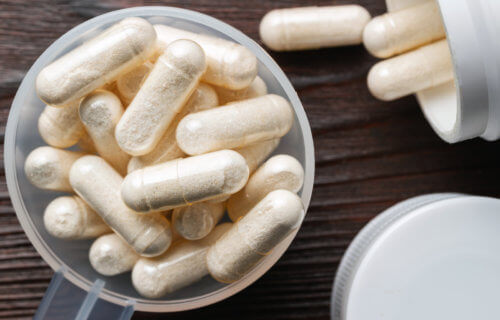CHICAGO — A sharp mind and a bodybuilder’s physique in old age almost sounds too good to be true. New research out of Chicago, however, suggests that a popular supplement in fitness circles for building muscle may also help stave off the most common form of dementia — Alzheimer’s disease. Scientists at the RUSH University Medical Center have discovered that beta-hydroxy beta-methylbutyrate (HMB) may help prevent Alzheimer’s progression.
To be clear, HMB is not a prescription drug or a steroid. It is an over-the-counter supplement widely available in sports and fitness stores. Bodybuilders often use HMB to increase their exercise-induced gains in muscle size and strength and improve overall exercise performance. HMB is generally considered safe for long-term use. There are no known side-effects.
Alzheimer’s is a progressive brain disease, that at this point, has no cure. Symptoms usually first appear after age 60, slowly destroying thinking skills and memories. Alzheimer’s affects as many as six million Americans and over 10 percent of people 65 and older, according to estimates.
“This may be one of the safest and the easiest approaches to halt disease progression and protect memory in Alzheimer’s disease patients,” says Kalipada Pahan, PhD, the Floyd A. Davis, MD, Professor of Neurology and professor of neurological sciences, biochemistry and pharmacology at RUSH Medical College, in a media release.

Prior research involving mice with Alzheimer’s disease found that HMB can successfully reduce plaques and increases factors for neuronal growth that protects learning skills and memory.
“Understanding how the disease works is important to developing effective drugs to protect the brain and stop the progression of Alzheimer’s disease,” Dr. Pahan adds.
Previous studies also reveal that a family of proteins known as neurotrophic factors tend to drastically decrease in the brains of people with Alzheimer’s disease. These proteins have been found to help in the survival and function of neurons, or cells responsible for receiving and sending messages between the body and the brain.
“Our study found that after oral consumption, HMB enters into the brain to increase these beneficial proteins, restore neuronal connections and improve memory and learning in mice with Alzheimer’s-like pathology, such as plaques and tangles,” Dr. Pahan explains.
All in all, these findings indicate that HMB stimulates a nuclear hormone receptor known as PPARα inside the brain responsible for regulating the transport of fatty acids, considered key to the success of HMB as a neuro-protective supplement.
“If mouse results with HMB are replicated in Alzheimer’s disease patients, it would open up a promising avenue of treatment of this devastating neurodegenerative disease,” Dr. Pahan concludes.
The study is published in the journal Cell Reports.
You might also be interested in:
- Brain games: Crossword puzzles and artistic hobbies can lower Alzheimer’s risk
- Best Brain Supplements: Top 5 Cognition Boosters Most Recommended By Experts
- People with fatty muscles are more vulnerable to declining brain health

